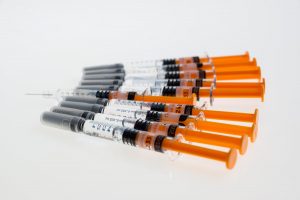Law enforcement officers wishing to obtain a blood sample of a driver suspected of being impaired would be wise to get a warrant. However, the latest practice of so-called “e-warrants” is making that process much easier, a fact our Fort Lauderdale DUI defense attorneys want to make individuals aware.
When it comes to sobriety testing during traffic stops of suspected impaired drivers, there are a few things a Florida DUI defense lawyer will want you to know in advance:
- DUI checkpoints are legal in Florida. The U.S. Supreme Court has held sobriety checkpoints are generally legal and do not violate one’s constitutional rights (so long as they adhere to certain protocol and aren’t discriminatory). Some states have ruled them unconstitutional in their own borders, but Florida allows them, so long as law enforcement officers follow certain guidelines.
- Submission to field sobriety tests (such as the Nystagmus test, walk-and-turn, balance-on-one-foot, etc.) are not compulsory/mandatory. However, one’s refusal can be used against you in court, per the 1995 Florida Supreme Court ruling in State v. Taylor. Bear in mind, however, the results – which are subjective – can be used against you too, and have arguably in some cases proven more damaging than a refusal.
- Submission to a chemical breathalyzer test is compulsory, per F.S. 316.1932, Florida’s implied consent law. This state law holds that one’s driver’s license will be automatically suspended for one year upon refusal of a breathalyzer test, even if one isn’t later found to have been impaired. (Keep in mind you’re likely to lose your license for a time if you’re convicted of a DUI too, and breathalyzer results can be tougher for a defense lawyer to challenge than a field sobriety test.) A 2016 decision by the U.S. Supreme Court in Birchfield v. North Dakota held that a breathalyzer test is considered a “search” under the Fourth Amendment to the U.S. Constitution, but may be exempted from the warrant requirement if incidental to arrest.
- Submission to a blood test, which is considered more invasive, generally requires a warrant. This is per the 2013 U.S. Supreme Court ruling in Missouri v. McNeely, though the court did allow some leeway on a case-by-case basis. As noted in Birchfield, a warrantless blood draw can be allowed if it is incident to arrest, but officers take a risk of having that evidence suppressed if they don’t first obtain a warrant.
Much of this all comes down to case-by-case circumstances, but particularly if the incident involves a serious crash with injuries or death, one needs to be especially cautious and choose to decline submission to any test unless/until speaking with a Fort Lauderdale DUI defense lawyer. Voluntary submission to any test or question often removes the potential for a defense lawyer to challenge the evidence with a motion to suppress.
How E-Warrants Are Changing the DUI Blood Test Dynamics
An increasing number of communities are training police officers to draw motorists’ blood either in vans or police stations. As noted in a recent PBS article on the issue, agencies are concerned as the opioid epidemic grows and as an increasing number of states legalize marijuana to varying degrees. By training more officers to conduct blood tests on the roadside, they can get more accurate readings (as many substances – including alcohol – cycle through the bloodstream fairly quickly.)
To address the warrant requirement for blood draws, communities have established on-call judges who can approve warrants electronically, typically within a matter of minutes, no matter the time of day or night.
Some law enforcement officers have called this “a game-changer.” While courts have typically found breathalyzer tests to be an adequate means of determining alcohol impairment, the same is not true for drug impairment. This is why departments have become aggressive about ways to initiate prompt blood tests. But as our Fort Lauderdale DUI defense lawyers know, the rushed nature of these procedures and the varying training standards for police phlebotomists (those trained to draw blood) could leave the legality of the evidence gathered in question.
Call Fort Lauderdale DUI Defense Attorney Richard Ansara at (954) 761-4011. Serving Broward, Miami-Dade and Palm Beach counties.
Additional Resources:
Police are now taking roadside blood samples to catch impaired drivers, April 19, 2019, By Jenni Bergal, PBS
More Blog Entries:
South Florida Defense Attorney’s Take: When One Defendant’s Trash is a Prosecutor’s Treasure, March 31, 2019, Fort Lauderdale DUI Defense Lawyer Blog
 Fort Lauderdale Criminal Attorney Blog
Fort Lauderdale Criminal Attorney Blog


